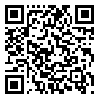Introduction:The ability to use skills such as reading, listening, analysis and decision making in health status depends on the degree to which individuals have the capacity to obtain, process, and understanding basic health information and services needed which is defined in term of health literacy. The purpose of this study was to determine the level of health literacy in referred patients to Yazd Diabetes Research Center.
Methods: This cross-sectional study performed on 432 patients referred to Yazd Diabetes Research Center in 2014. Health literacy was measured by the Test of Functional Health Literacy in Adults (TOFHLA) and analyzed using the SPSS-17 software and analytical statistics (T-Test, Chi-Square, A-Nova and linear regression).
Results: The mean age of studied population was 55.02 ± 6.32 years old and the mean duration of diabetes was 10.24 ± 7.13 years old. Increase age and decrease the Duration of diabetes, Increase health literacy scores. The average of Health literacy scores was significantly higher in men than women. Retired people, people living in the city, people with high educational level and good economic situation were more literate. (P-Value <0.001)
Conclusion: The results showed that health literacy in 59.3 percent of patients was insufficient, in 18.5 percent was border and only 22.2 percent of patients had adequate health literacy that providing facilities and health literacy education seems to be necessary for them.
Received: 2016/09/19 | Accepted: 2016/09/19 | Published: 2016/09/19
| Rights and permissions | |
 |
This work is licensed under a Creative Commons Attribution-NonCommercial 4.0 International License. |


